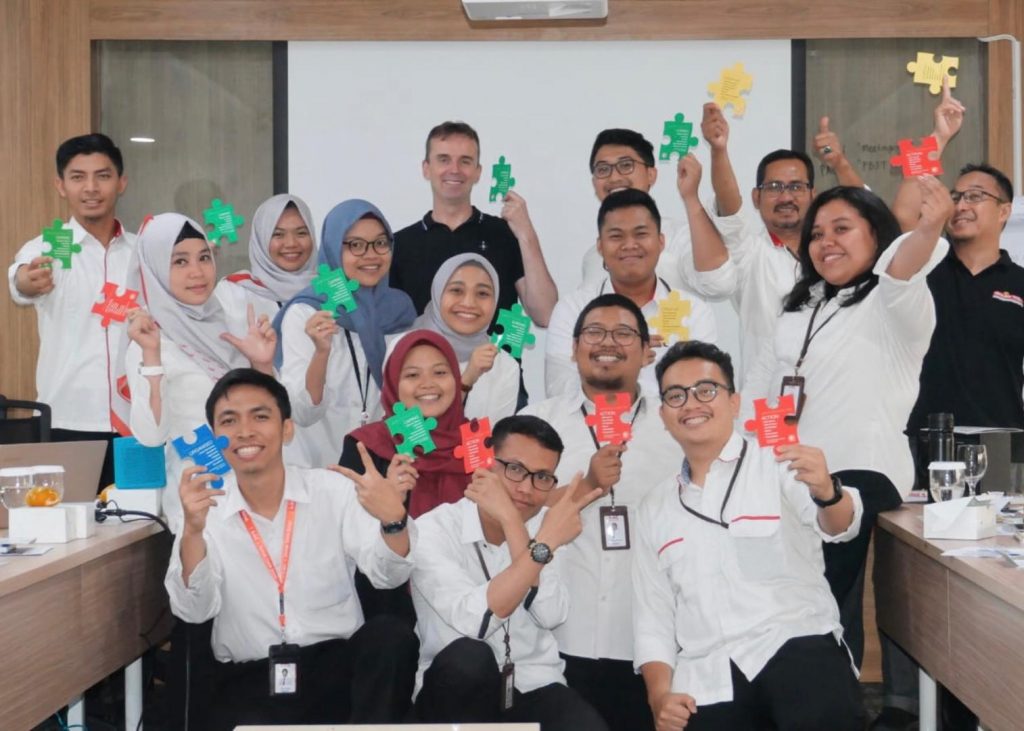How Organisations Can Build Resilient Teams

There are signs that we may be over the worst of the pandemic. We may still endure third, fourth and fifth waves, but the vaccine programme and widespread immunity will likely lessen their severity.
Most businesses I know are now thinking of the future, and how they can build resilient teams after more than a year of crisis strategy. The pandemic took the majority of people by surprise; there were no policies in place to address such a situation, there was a scrabble for the technology to establish remote working teams across the land, and there was a real fear within a number of sectors that they may never recover when government restrictions prevented many businesses from opening.
As I write, restrictions are more or less lifted, and there is very little that we can’t do compared to life before Covid.
We can now get back to normal…
Wait, what? Why would we want to do that? Going back to ‘normal’ means being blissfully unaware and unprepared for the next big crisis that’s waiting around the corner. There could be another global pandemic (scientists have warned that more vicious viruses could appear on the scene, capable of wreaking the same havoc), or it could be something else—a rival takeover bid, a severely damaging recession, a meteor hitting the Earth…
Resilience isn’t just coping with bad situations that impact on our daily lives, it’s also learning and adapting to new situations when the initial crisis recedes. It’s being able to recognise what wasn’t working before and firmly incorporating/building on new methods and practices that showed promise amid the panic.
There’s a lot that was wrong about how we used to work, pre-pandemic…about the structure and culture of some companies and how some leaders managed their teams. Lockdown gave many of us the time and physical space to be objective about the company we work for and these poor practices, which has seen some employees vote with their feet and change jobs (for some, an entire change of career).
Companies shaping up to be the most successful and competitive enterprises in the market right now will be focusing on enabling and building resilience in their people. So that the whole organisation is prepared for market changes, staffing issues or workplace culture trends. These companies recognise that their people are their biggest asset—an asset that has incredible power if nurtured, valued and applied effectively.

Equip your leaders with the skills to lead 2021 workforces
Management practices from yesteryear are still being used in some companies. The world has moved on from intimidation, threats and the belief that every employee is simply disposable. Ruling with an iron fist simply stifles company growth.
Modern leadership enables teams to flourish as individuals whilst growing the team’s resilience levels. Leaders support and steer, understand and innovate.
To equip members of their team with the skills they need, leaders should listen and observe. They need to understand the strengths and weaknesses of each team member and note how they interact with the rest of the unit. Where there are shortcomings or skills gaps, leaders should plan how to work on these with the individual in question or to ascertain suitable training. They need to remember that we’re all a work in progress.
The skills needed in 2021 workplaces are not just practical but behavioural, too. Soft skills such as empathy and kindness to other members of the team, how to show respect and demonstrate a good attitude. Resilience is indeed important—and not just on a large scale, concerning significant things such as working patterns, changes to the job role, etc., but the smaller things too, such as emotions day to day, coping with minor setbacks and feeling prepared for any further changes.
Recognise that adjustments may have to be made on all sides
Just because employees have become used to aspects of the pandemic does not mean that they’ll deal with everything that comes their way in equal measure. Resilience is an ongoing skill to hone. If a team member has reservations about being in a shared workspace with colleagues for hours at a time, after working alone from the comfort of their homes for the last eighteen months, it may not be just the virus they’re worried about.
Interacting with their colleagues, focusing on tasks amid a busy office, not having control over their time and workload, for example…adjustments may continually need to be made. It should not be a case of ‘well, you’re back now, just get on with it’.
Leaders are human too
No employee wants a robot as a manager. How are employees meant to feel confident about sharing their concerns or asking for support if their leader is cold, distant and focused only on the practical?
Employees in 2021 want to feel heard and valued. It takes a leader with great people skills and an understanding of different personalities and human behaviour to achieve this, not a leader who only cares about their own career path and impressing their managers by flogging the life and soul out of their teams.
Authenticity is crucial for leaders because teams won’t follow insincere, false, selfish people to the ends of the Earth. Don’t feel that, as a leader, you need to have all the answers all the time. Show your own flaws and vulnerabilities if you want your team to trust you.

Focus on results, not how they’re achieved
If you look at the stats that various research bodies have gathered on the subject of remote working, you’ll see that productivity didn’t dip during lockdown—in fact, it rose significantly. We need to shift our thinking away from hours worked to results gained. Presenteeism is going the way of the dodo.
Promoting flexibility within your company isn’t a flaw, a sign of weakness or a lack of control, it’s demonstrating the trust you have in your workers that they will get the job done, wherever and whenever they work.
Greater flexibility helps employees feel valued and it makes them happier. They get to enjoy a better work/life balance without the constant stress of who can do school drop-offs and pick-ups, for example. A ‘give back’ culture is what successful companies are incorporating. Rigid working patterns and no appreciation that employees have lives outside of work are seeing people leave their roles in droves. If the pandemic has taught us one thing, it’s that working for a company that doesn’t appreciate you is not worth your time and energy when there are forward-thinking, people-centric companies out there that will.
Leaders need to consider that people have options. Few people are still blindly stumbling through life after everything that’s happened over the last year. Some industries are suffering from a real shortage of workers because the conditions they provide, the wages they offer, and the hours they insist on are clearly unappealing.
I reiterate: a company’s biggest asset is its people. Invest in them.
Book a free consultation
For more information on how you can achieve organisational resilience and improvement, call 01924 898930.





[…] article was intended to serve as a round-up of everything we’ve learned this year and what organisations have put in place to be more resilient—but after all the announcements that have been coming thick and fast from the Government, we need […]